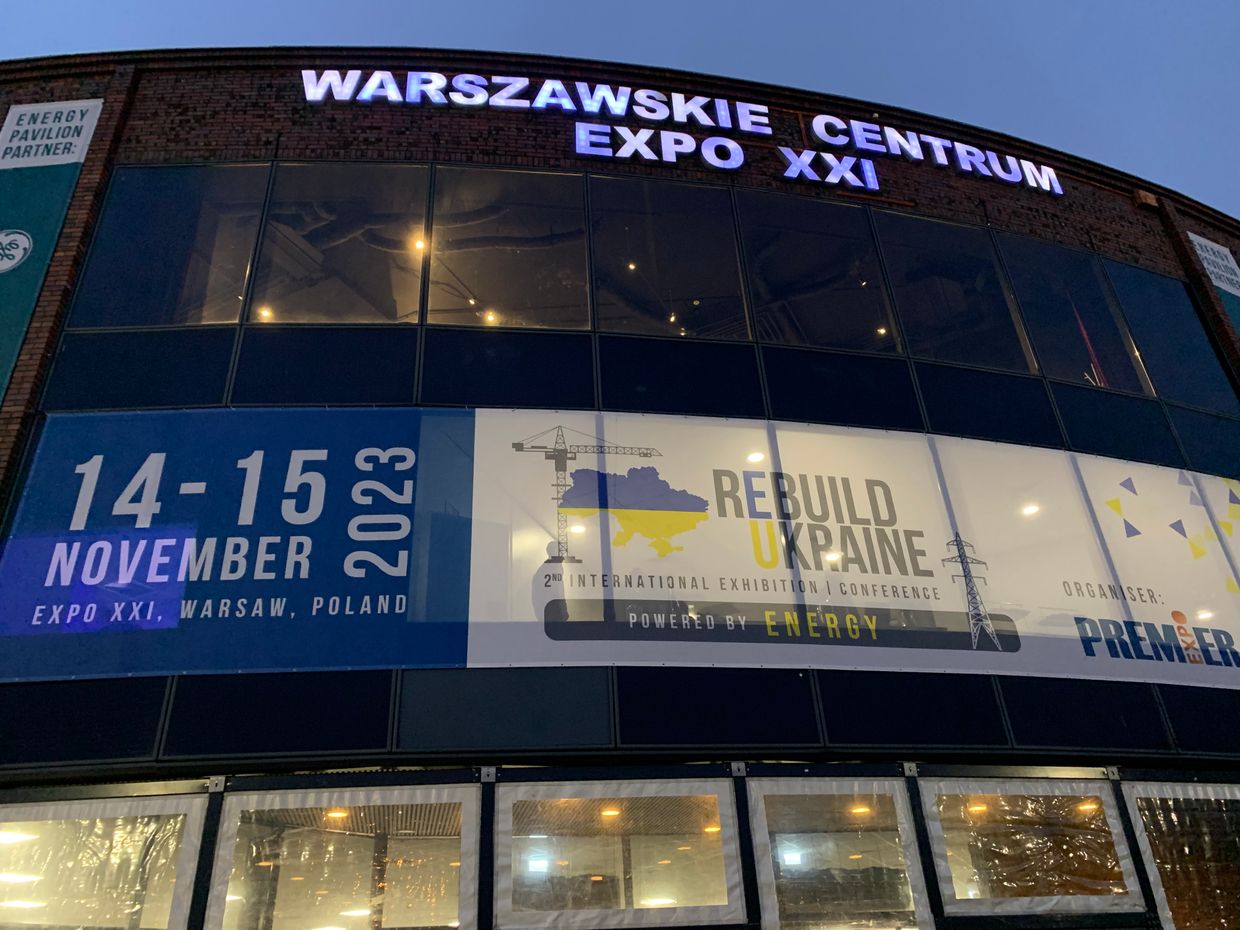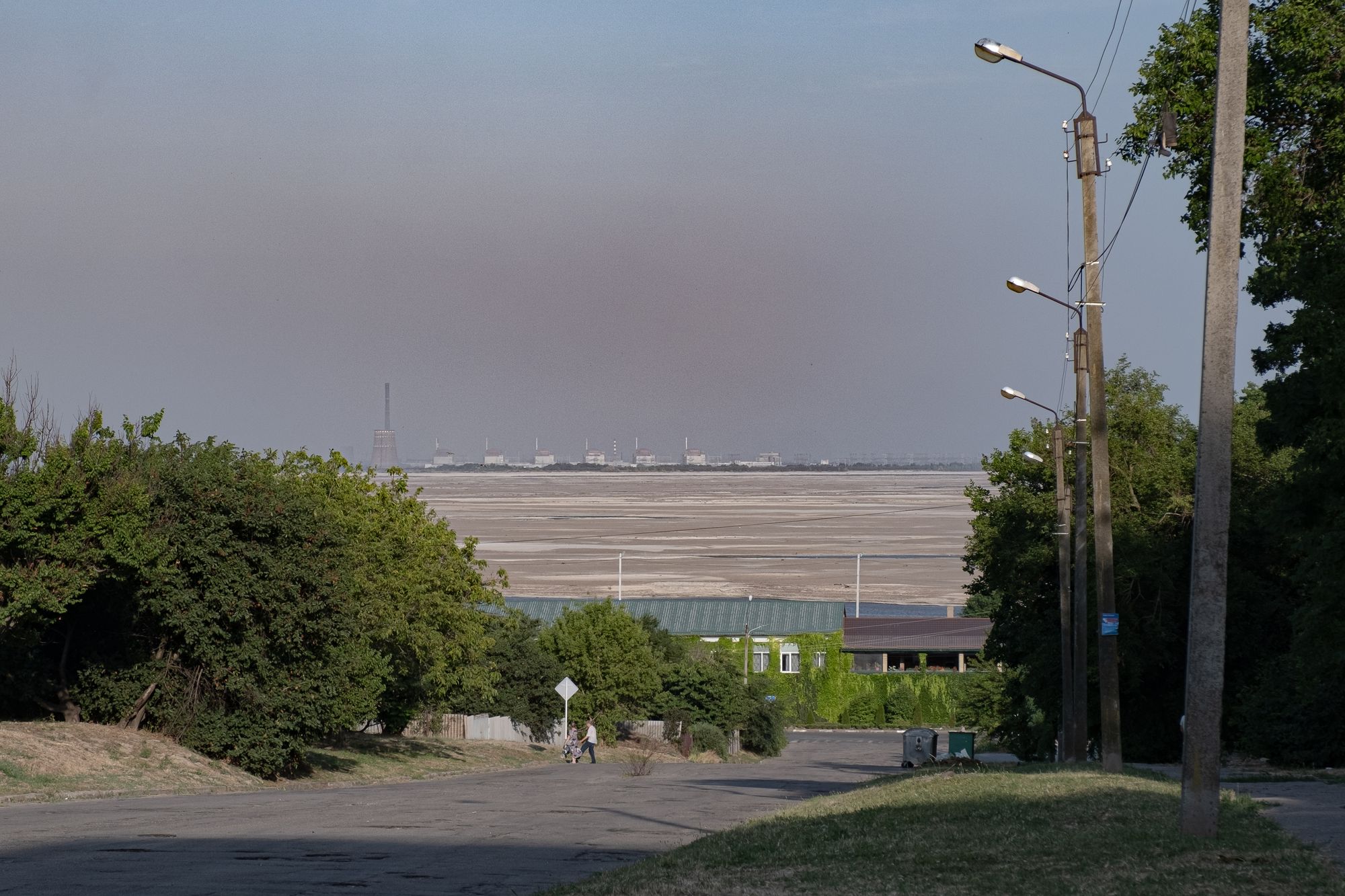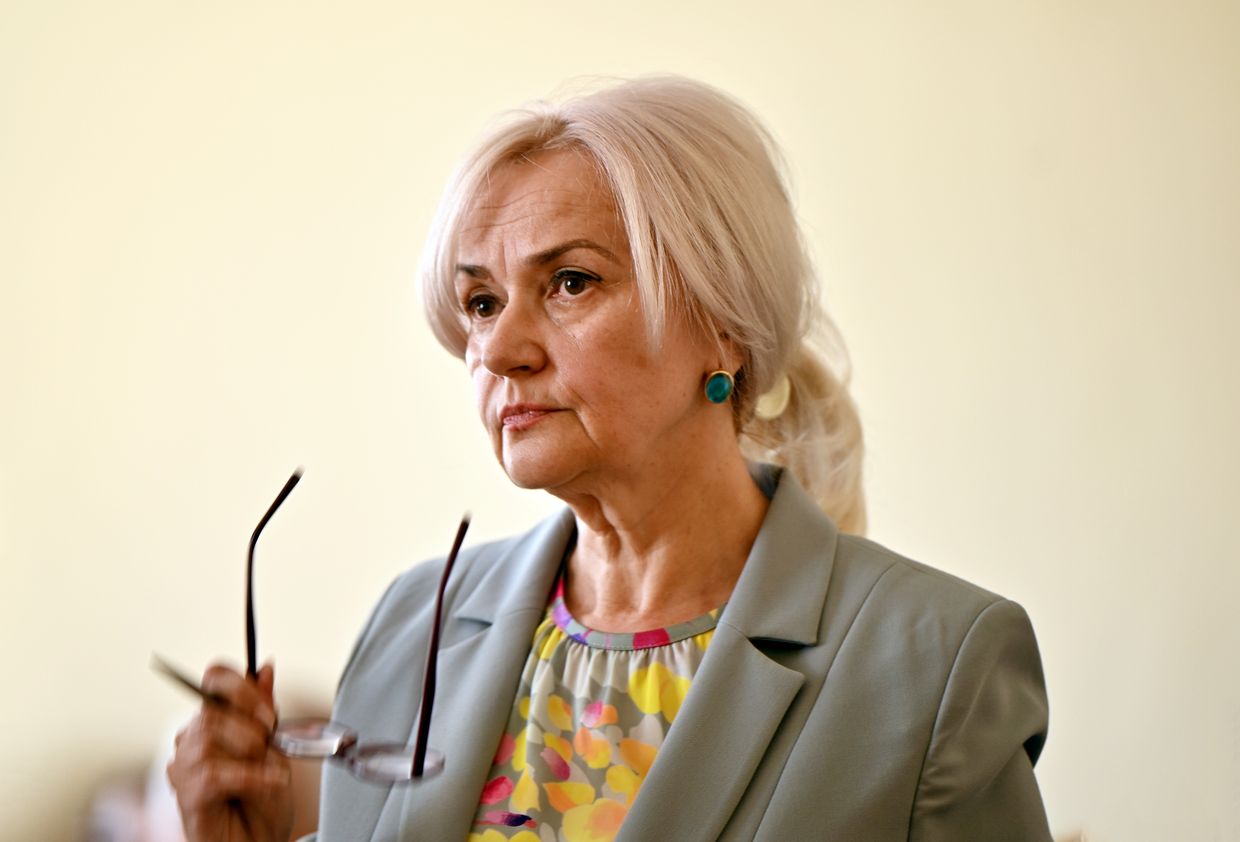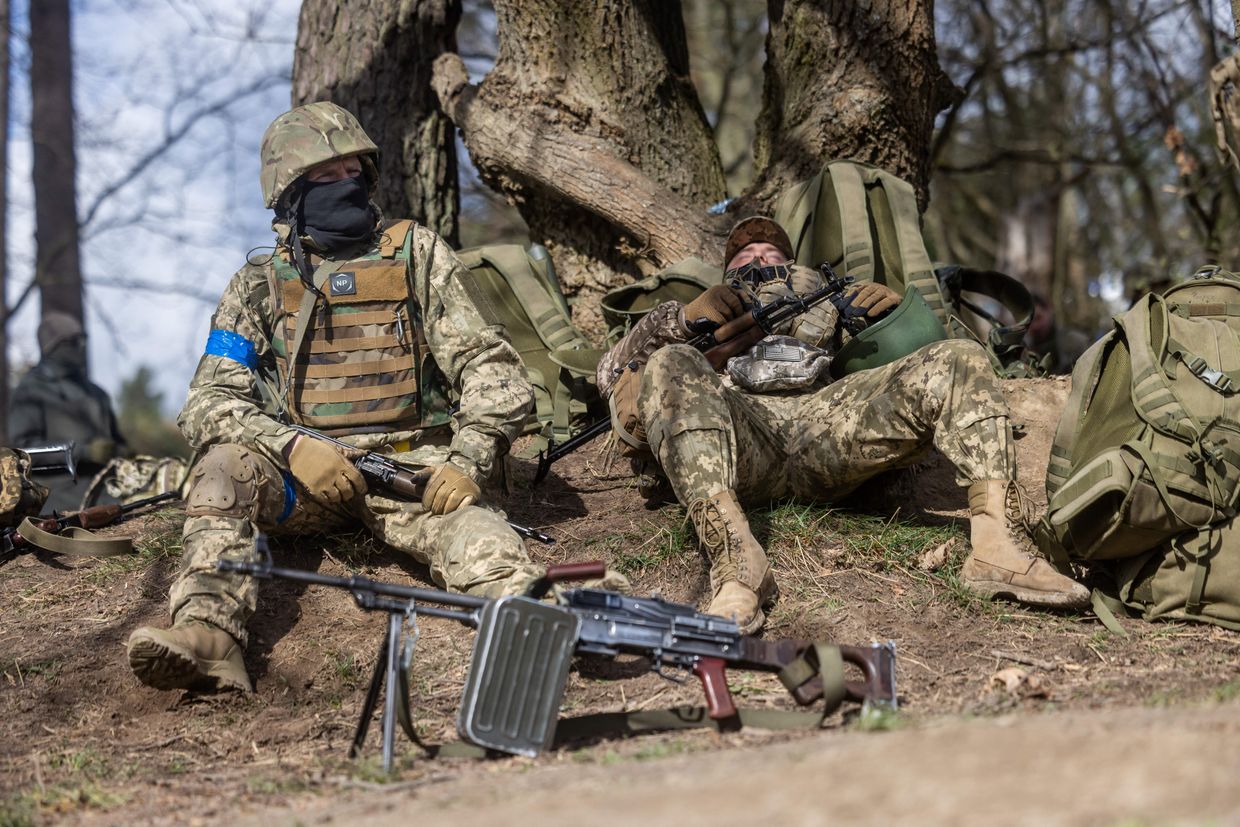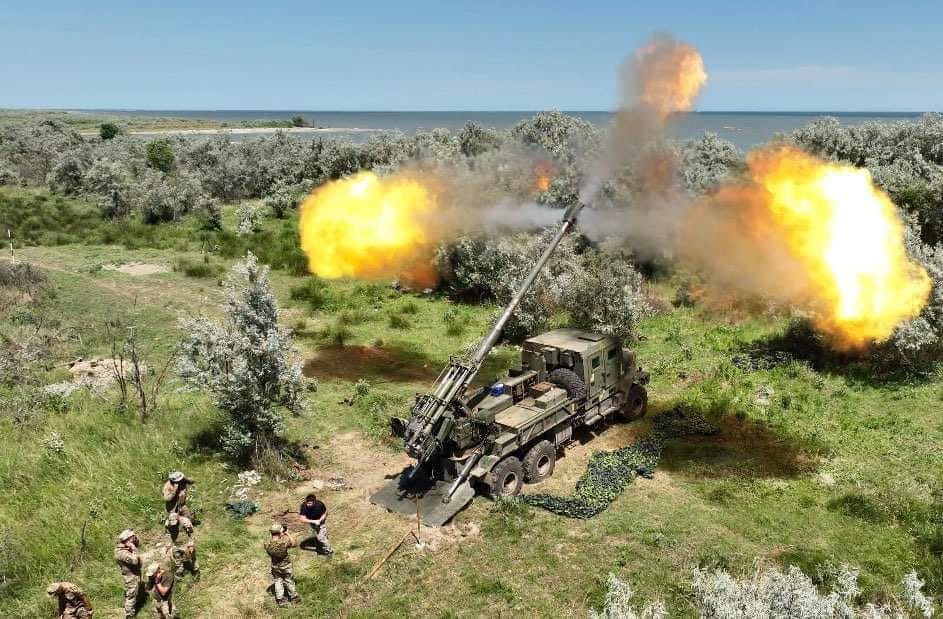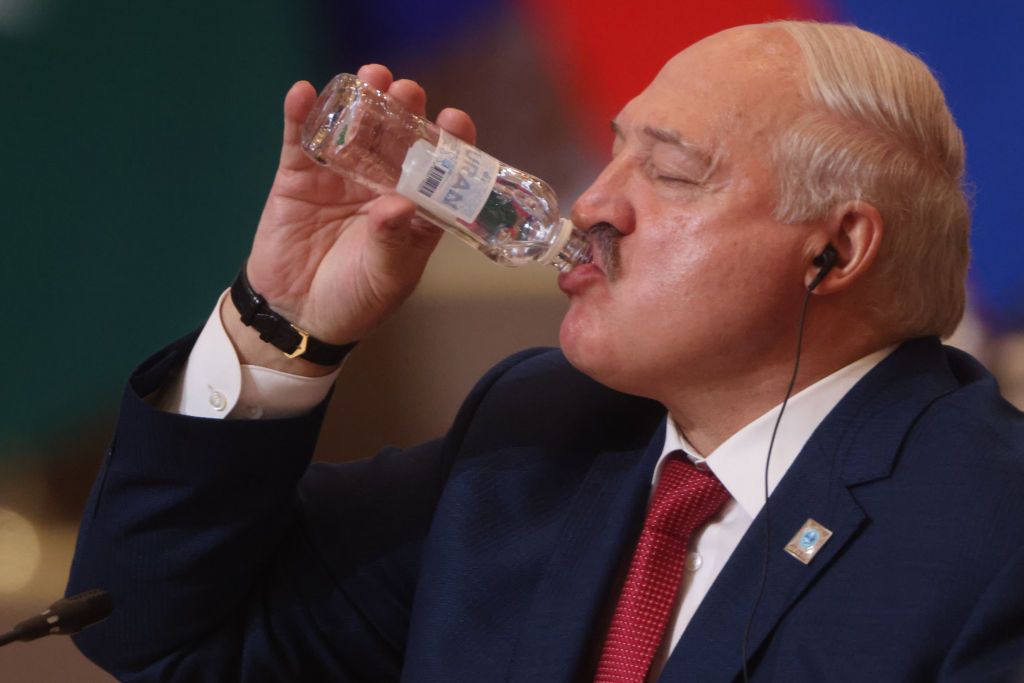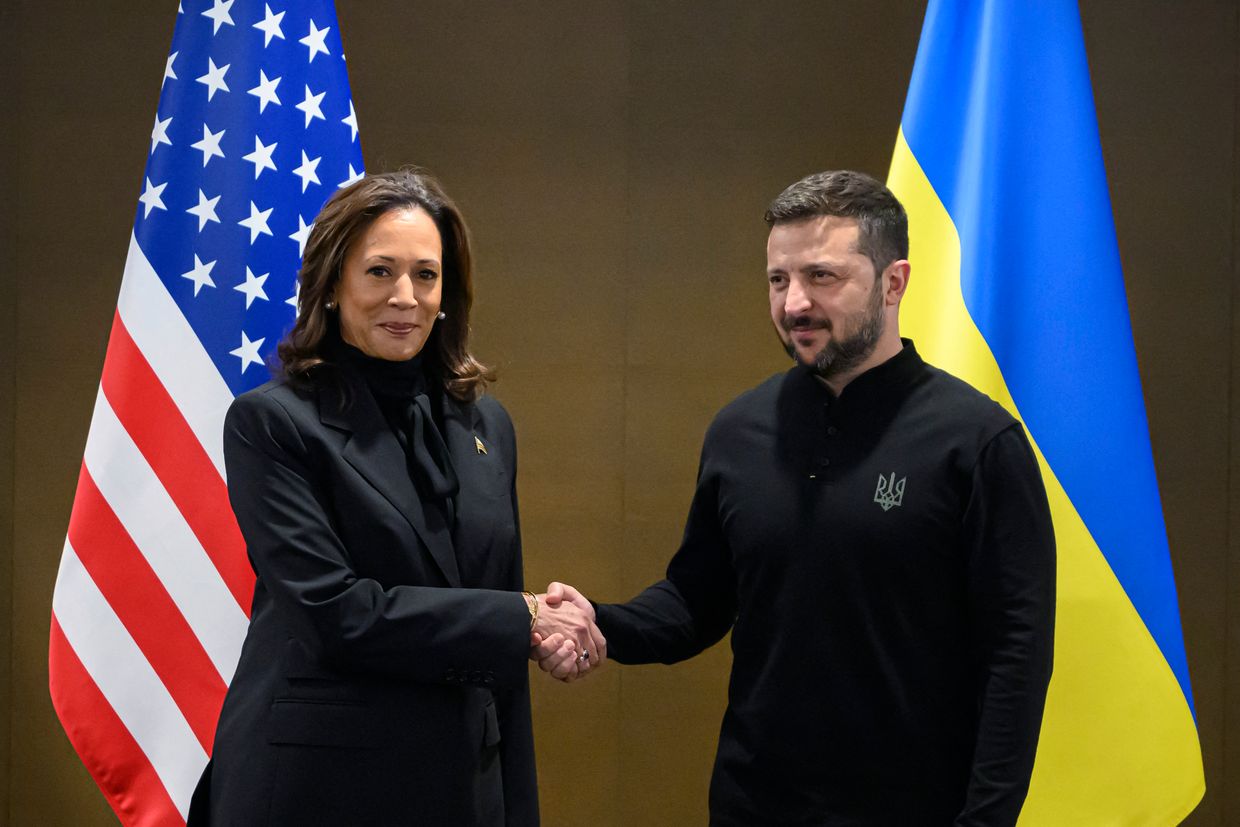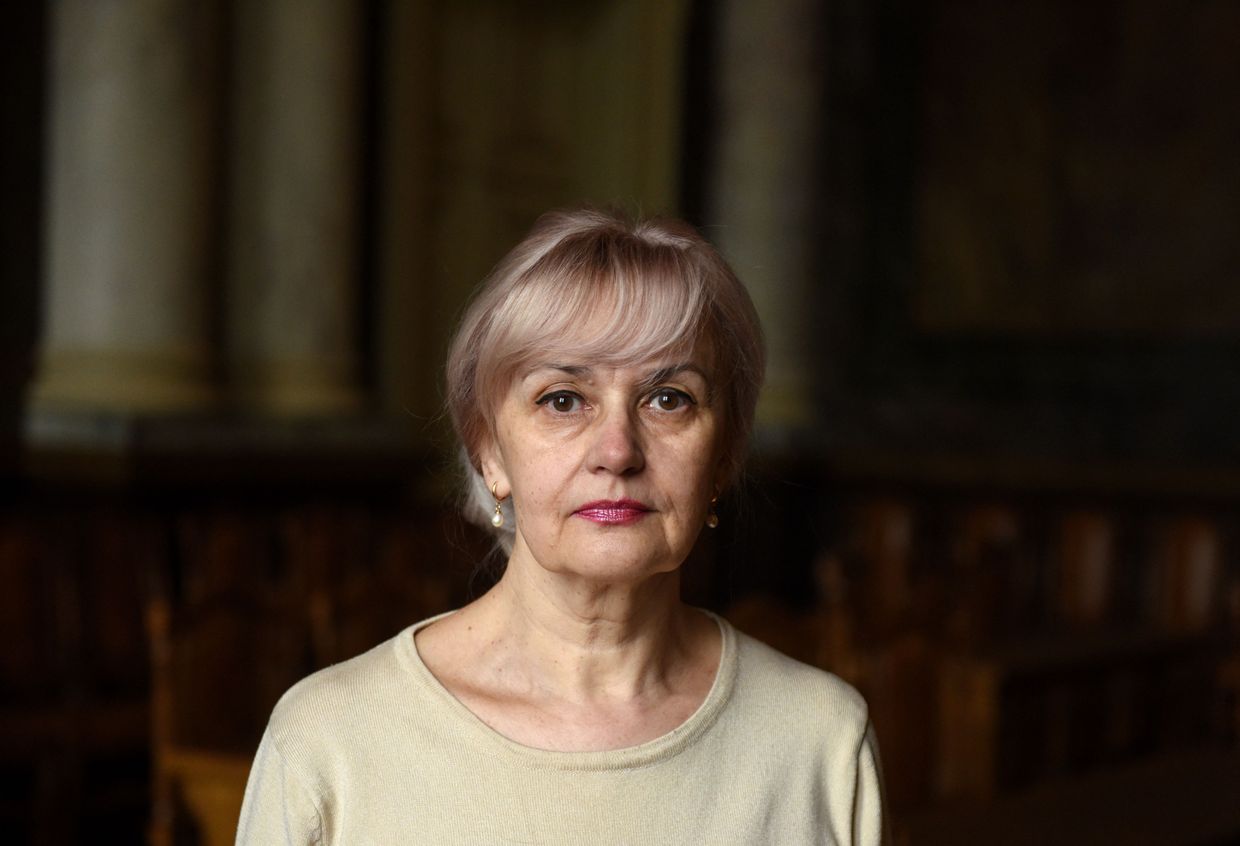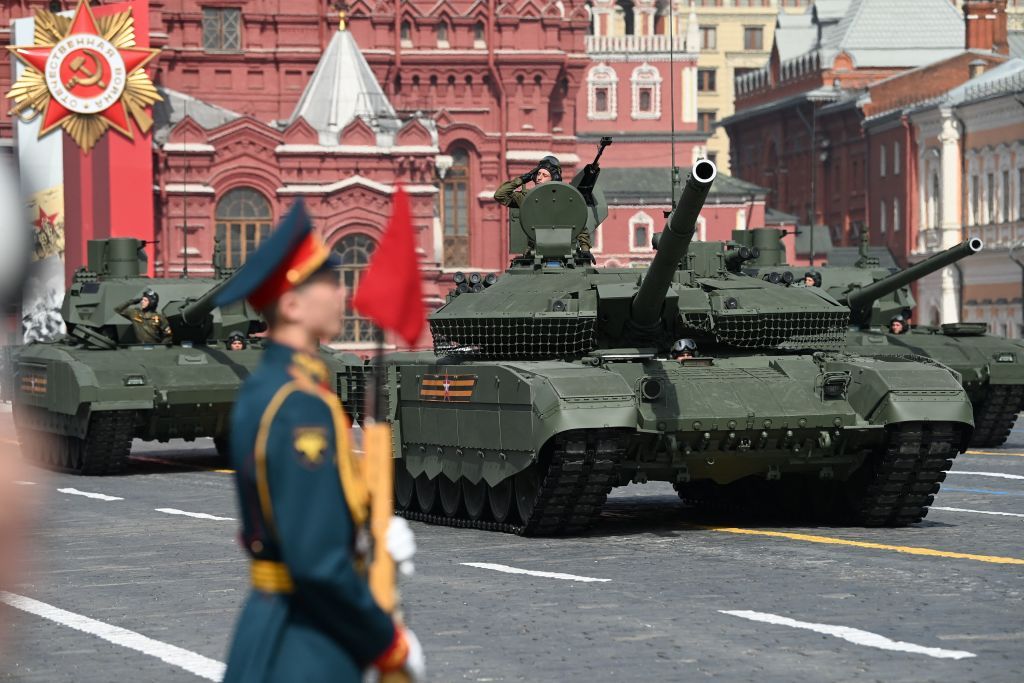The following is the Nov. 14, 2023 edition of our Ukraine Business Roundup weekly newsletter. To get the biggest news in business and tech from Ukraine directly in your inbox, subscribe here.
Rebuild Ukraine
The Rebuild Ukraine conference isn’t Anatoly Sushon’s first expo since he got into the business in the early 90s, but this one hits closer to home. Himself a native of Odesa, the idea behind Rebuild Ukraine, the second one this year already, is to get local communities affected by the war in front of companies and countries that have both the know-how and the financing to rebuild their cities and towns.
One of those 26 communities is Ukraine’s southeastern port city of Mariupol. Despite currently being under Russian occupation after a months-long siege that nearly destroyed the city, its exiled authorities are at the conference, to “make the world and Europe hear us now, to understand that we are not wasting time,” the city’s Mayor Vadym Boichenko told me.
Flipping through the city’s glossy, 80-page “fast-recovery plan” titled “Mariupol Reborn,” Boichenko says rebuilding Mariupol will take 20 years and cost 14-15 billion euros. His team’s main task in coming to Rebuild Ukraine is “to gain the expertise, knowledge, and vision,” to have a plan to put into action as soon as the city is liberated.
The businesses and international organizations, over 570 from 30 different countries, are here partly for sentimental reasons, Sushon said. “They feel for Ukraine, and want Ukraine, when it joins the European Union, to be a proper member, not a poor or ruined one.”
But there’s another reason they’re here (and I’d say the real reason). Ukraine’s reconstruction needs are already in the hundreds of billions, and counting. “If you’re one of these businesses, you think, I’m the business that should get a piece of that action. That’s what drives them all to be here,” Sushon said.
One representative from a French company that is already actively investing in Ukraine’s reconstruction said Ukraine right now is “the place to be for the construction materials industry.”
No matter how motivated companies are to get their piece of the pie, however, reconstruction in Ukraine can’t begin in earnest until the war is over, or at least until there are security guarantees, one Polish analyst told me today. According to him, not even war insurance is enough to really bring foreign companies to start investing in Ukraine at the level that’s needed. Corruption, of course, is still a huge turn-off, he said.
But when it does begin, and it will, it will be a win-win for both the companies that want to make a buck (no matter how cynical that may sound) and Ukrainian cities and towns that need hospitals, schools, homes, and offices. Smart businesses think long-term, and as Sushon pointed out, companies know Ukraine’s reconstruction will last decades.
Border skirmishes
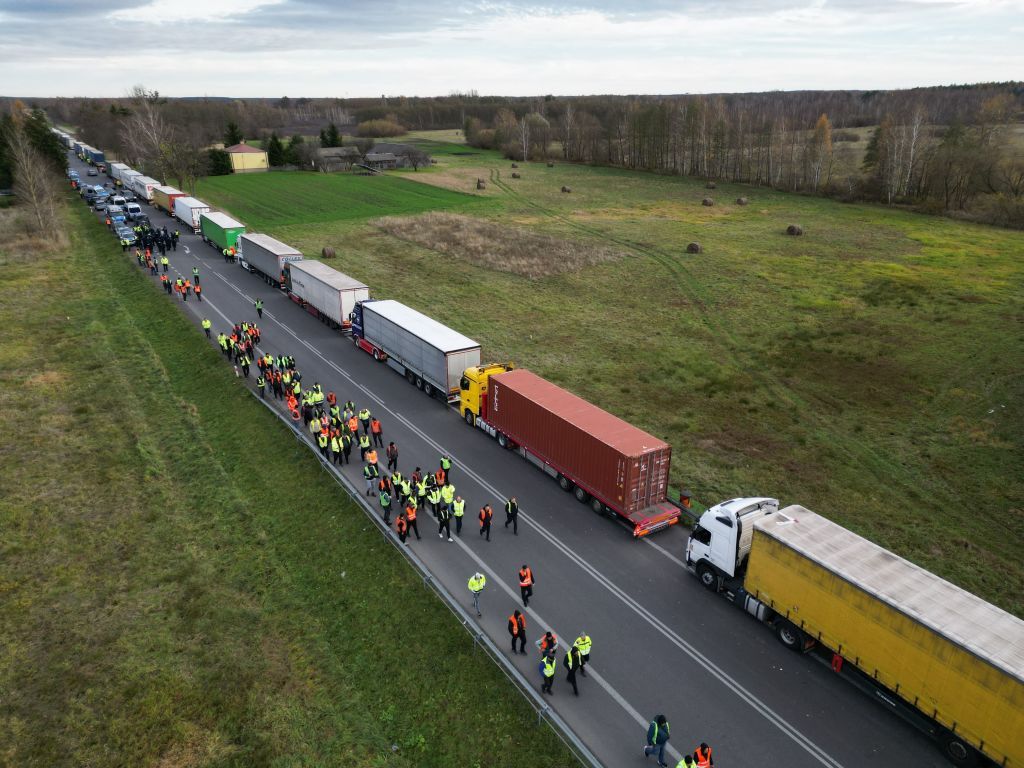
Ukraine-Poland tensions are back in the headlines as Polish truckers took to blocking three checkpoints at the border between the two countries over what they say is an influx of unfair competition brought on by an easing of EU access rules for Ukrainian goods.
And in a sign this isn’t going to get resolved any time soon, Polish trucking representatives said on Nov. 13 that the latest rounds of talks with Ukrainian officials had failed to end the blockade.
In the meantime, more than 2,500 trucks are now waiting to cross the border from Poland into Ukraine, State Border Guard Service spokesman Andriy Demchenko said on Nov. 12.
It all feels a bit like déjà vu after Polish farmers took to the streets to protest the influx of Ukrainian grain, prompting the EU to block Ukrainian grain from five EU countries earlier this year.
After the EU lifted the ban in September, the Polish government implemented unilateral restrictions on Ukrainian grain — a blatant violation of the EU’s common trade policy — ostensibly to protect domestic farmers, but also likely as a way of pandering an important part of the electorate ahead of elections in October.
But this time is different. The truckers don’t have the backing of the government, which has asked the truckers to stand down.
This latest dispute is yet another blow to Ukraine’s exports. Kyiv-based investment bank Dragon Capital told the Financial Times that the protestors are blocking crossings that account for a quarter of Ukraine’s exports of grain and oilseeds by road.
On the up and up
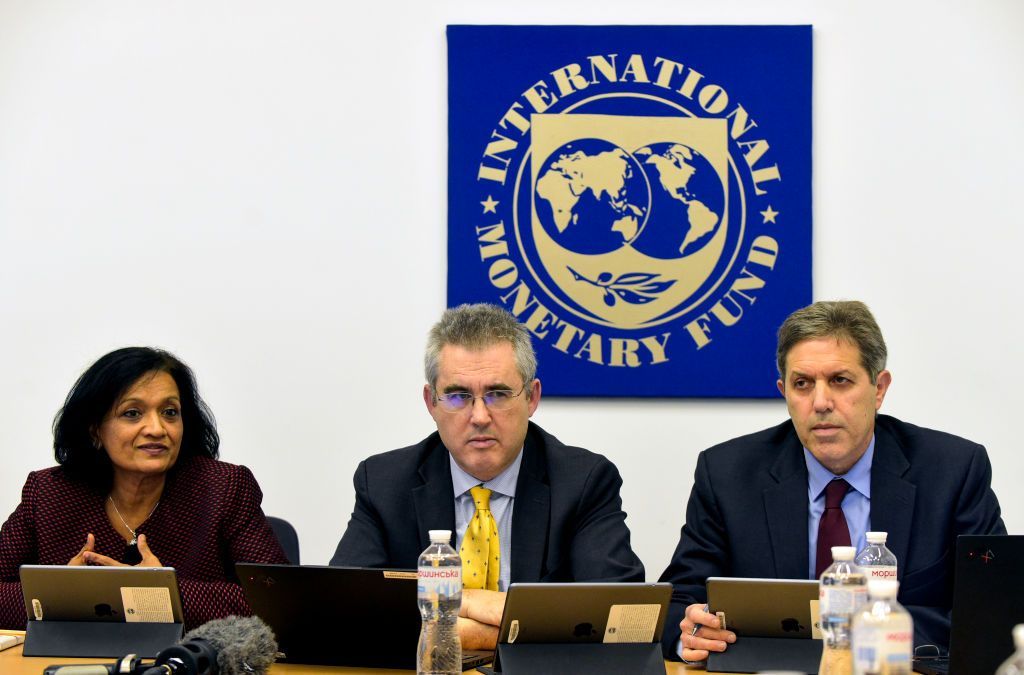
Ukraine’s economy is once again showing signs that businesses in the country are adjusting to their new wartime reality and that the economy is recovering even more quickly than expected.
The International Monetary Fund (IMF) said on Nov. 10 said Ukraine's economic outlook for this year is exceeding expectations, as it bumped Ukraine’s GDP growth to 4.5% up from around 1-3% in July.
"The Ukrainian economy continues to show remarkable resilience and further signs of stabilization as recent economic developments point to a stronger-than-expected economic recovery in 2023," IMF official Gavin Gray said.
Gray made the statement on the heels of a meeting between IMF and Ukrainian officials in Warsaw where they discussed the review of a four-year $15.6-billion loan program for Ukraine. The multi-year year program is part of a $115-billion global package to support Ukraine’s economic stability as it fights off Russia.
Following this latest review, the IMF’s Executive Board is expected to release a tranche of $900 million in funding to Kyiv.
“The financial system remains stable, liquid, and highly provisioned thanks to extensive emergency measures, but continued vigilance is warranted given war-related uncertainty," Gray said.
Meanwhile, 70% of Ukrainians expect an economic boom in post-war Ukraine, according to a recent survey conducted by the Kyiv International Institute of Sociology.
Warning signs
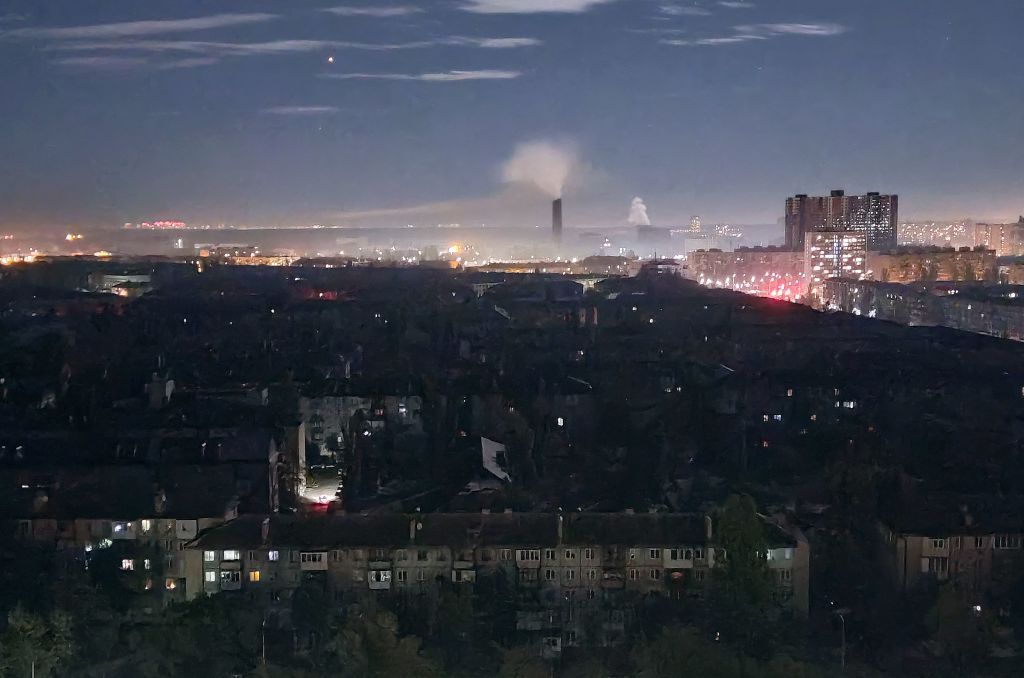
An unseasonably warm fall in Ukraine hasn’t stopped Russia from relentlessly attacking the country’s energy system in what looks like the start of a second winter season of Russia’s attempts to knock the power out in Ukraine.
Just recently on Nov. 11, Ukraine’s Energy Ministry said Russian attacks hit energy infrastructure across Ukraine, leaving thousands without power in six different oblasts. Repair work started right away and was able to get the lights back on for around 3,600 people in the day following the attacks.
Earlier on Nov. 6, Energy Minister Herman Halushchenko said that Ukraine's energy system had been attacked 60 times in recent weeks.
Despite statements from the government and energy companies in Ukraine that preparations are being made to defend critical infrastructure and mitigate damages brought on by Russian attacks, Ukraine’s energy system remains extremely vulnerable.
Last fall and winter’s attacks on the energy system caused $10 billion in damages without the attack on the Kakhovka dam, according to the UN, and Ukraine’s system is still operating at about 50% of its prewar levels while it’s in emergency mode.
The current state of affairs is worrying amid warnings by President Volodymyr Zelensky, who called on Nov. 12 for the country to prepare for new waves of Russian attacks on infrastructure as winter approaches.
"We are almost halfway through November and must be prepared for the fact that the enemy may increase the number of drone or missile strikes on our infrastructure," Zelensky said in his nightly address.
Private-sector promise

To rebuild the country following Russia’s brutal invasion, Ukraine will have to attract billions to its private sector.
The International Finance Corporation (IFC) — the investment arm of the World Bank — believes that if Ukraine manages to reform some of its key sectors and liberalize its markets, it could raise $130 billion in private-sector investments, the IFC said in a report published in late October.
The Kyiv Independent spoke with IFC Regional Director of Central and Eastern Europe Rana Karadsheh about attracting investment to Ukraine and creating a better future for the country.
The Kyiv Independent: Are investors hesitant to put their money in Ukraine?
Rana Karadsheh: Some are. That's why they're not all coming in now, but they're all engaged. We're engaging with a lot of investors, whether real sector or financial investors.
We’ve supported some that have come in to invest. Some are actively looking and some are waiting to see what materializes.
But that's what this de-risking pathway (the IFC is creating) is intended to do. It is to give them visibility to make them more comfortable to come in.
The Kyiv Independent: Has the fact that people are now realizing that this war is going to be longer than initially expected changed calculations at all from the investment community?
Rana Karadsheh: Not really. It can vary and you can see differences in terms of your engagement. I would say when the invasion first happened, regardless of whether investors thought it was going to be short or long-term, there was hesitation.
Now, there are those who are seeing the resilience of the country and of the companies. Those who are closer and know the country better tend to have a more engaged approach. Those that might be further away, may be watching more. The engagement and the interest still remain, at least from the companies that we are talking with.
The Kyiv Independent: Are you optimistic that Ukraine can make the reforms needed to attract this 1.3 billion?
Rana Karadsheh: Of course! We wouldn’t be doing this if we weren’t optimistic. It doesn't happen overnight. It's a very slow, very deliberate and consistent process. But it does happen.
Read the full interview here.
What else is happening
The Economy Ministry will create a working group with MIGA to speed up war insurance for investors. The Economy Ministry together with the World Bank’s Multilateral Investment Guarantee Agency (MIGA) has agreed on the creation of a working group to accelerate the process of getting war insurance to investors. "Ukraine needs to unblock the inflow of private investments now. But everyone understands that without reliable instruments for insurance of military risks, we will not see an active inflow of investments,” Economy Minister Yuliia Svyrydenko said. According to the minister, MIGA has already moved forward with four war insurance risk projects.
DTEK contracts another 70,000 tons of coal imports from Poland. Ukraine’s private energy giant DTEK has contracted an additional 70,000 metric tons of coal from Poland as it prepares for a second winter of Russian attacks on the country's energy system, the company said in a statement on Nov. 13. “Our own coal mining always remains a priority for us, but additional shipments of fuel from abroad will allow us to go through the heating season more confidently. We are doing everything to get through this difficult winter and provide Ukrainians with light and warmth,” said General Director of DTEK Energy Ildar Saleev.
US ambassador: 100th ship passes through Black Sea humanitarian corridor. The 100th ship has departed through the Black Sea humanitarian corridor since its opening in August, U.S. Ambassador to Ukraine Bridget Brink said on Nov. 13. In total, 3.7 million metric tons of food and goods have passed through the corridor, Brink wrote on the social media platform X.
Financial Times: US seeks to foil Russia’s zeal to become major LNG exporter. The U.S. is directly targeting Russia’s ability to export liquefied natural gas (LNG) for the first time, which could disrupt global energy markets — something Washington has so far looked to avoid, the Financial Times reported on Nov. 12. The State Department sanctioned Russian Arctic LNG 2 in early November, blocking European and Asian countries from buying the Russian project’s gas when it starts producing next year, officials, lawyers, and analysts told FT.
US official: Frozen Russian assets won't be returned until Moscow pays for Ukraine's reconstruction. The roughly $300 billion in Russian assets that have been frozen by Ukraine's allies in the West will not be returned until Moscow pays for Ukraine's reconstruction, Assistant Secretary of State for European and Eurasian Affairs James O'Brien said at a U.S. Senate hearing on Nov. 8. O'Brien said the frozen assets gave the U.S. and its allies "leverage" in discussions about how to get Russia to pay.



